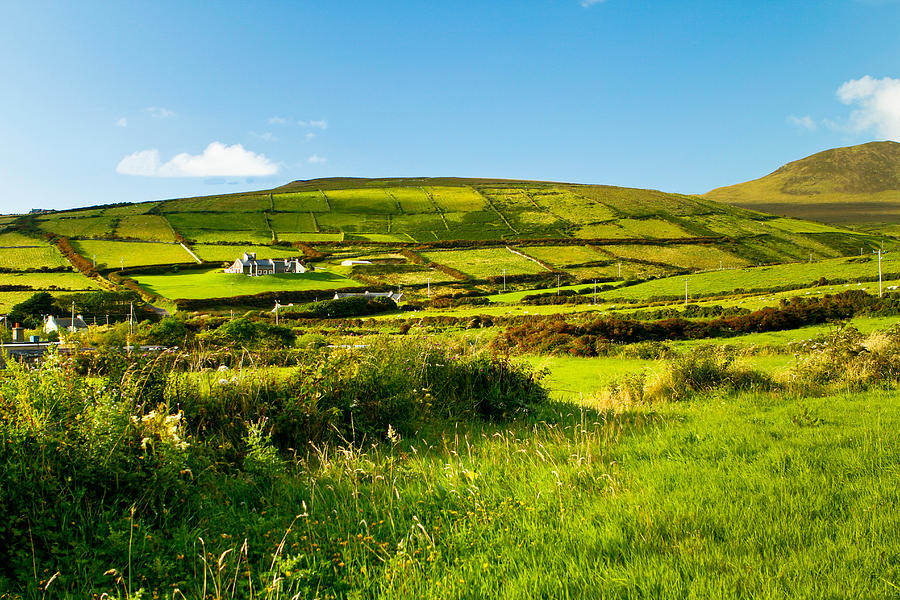Irish farmers ‘get’ science and the facts as much as anyone else and are upset at being labelled ‘environmental terrorists’.
This was said by Meath farmer, ‘Ear to the Ground’ presenter and journalist Darragh McCullough, who told ‘Behind the Headlines: Climate Change and Pandemic’, an online discussion facilitated on Tuesday night last by The Trinity Long Room Hub about what we can learn from the Covid-19 pandemic to address climate change.
The high profile farmer who manages the home-mixed farm, as well as running a flower operation which employs up to 40 people, said he is one of those “crazy optimists” who believe that Irish agriculture can be carbon neutral.
That, he said, is next to saying that the earth is flat in some circles with Irish agriculture so dependent on ruminants that “belch, fart and let all this methane into the sky”.
Irish farmers specialise in milk and beef that is shipped all over the world because they have a natural advantage in those areas and can’t compete with cheap imports in many other areas, the broadcaster told the panel.
The whole Covid-19 crisis had proven how resilient the food chain is and it is wishful thinking that we can back our way out of a globalised world and return to the cottage farm with a “bit of this and a bit of that”, he contended.
Greater diversity
While panellists had raised the issue of the need for greater diversity in agriculture, the Ear to the Ground presenter pointed out that this country still has grain farmers.
With greater public awareness about the impact of cutting down rainforests in South America to grow soya to produce protein which is ‘lorried’ into animals on the other side of the planet, more farmers will diversify, he contended.
“More farmers like me are now experimenting with growing protein crops on the home farm to feed to poultry and ruminants,” said Darragh, who told of his experience in responding to the collapsed flower export market due to Covid-19, by offering delivery of bouquets of flowers around the country for €20 – which has proven to be a blooming success.
Considering himself reasonably IT literate and social media savvy, he still found the sudden redirection of the enterprise which relies on migrant labour, to be an “incredibly stressful” period.
Biodiversity is a key way of making our society, environments and systems more sustainable and we don’t need to entirely break down current systems to get improvements, the Gormanstown, Co. Meath farmer, said.
This, he said, is one example of how Irish agriculture need not turn its back on ruminants to become a more carbon neutral type system and still be able to play to its trump cards.
Irish farmers had moved away from older systems in favour of perennial ryegrass as it’s cheap and easy to manage but is entirely dependent on chemical nitrogen, the Meath farmer said.
“Now that we ‘get’ that using nitrogen like it’s going out of fashion is a bad thing and with greater awareness of hidden costs, it’s worth the extra effort to encourage things like clover which fixes nitrogen into the ground in our swatches,” he contended.
There is no silver bullet and change won’t happen overnight, the broadcaster said.
“It should be borne in mind it’s only in recent times that farmers have been made aware that some of what we’re doing has been having serious consequences and that research has come up with alternatives,” he said.
‘Just Transition’
“When Covid-19 is over, there is a need to have a long conversation about ‘Just Transition’,” the Meath man said.
“I feel that the idea and theory isn’t playing out for huge swathes of rural Ireland so when you go to the midlands, people are looking at their way of life in the peat industry being shut down at the end of this year. That is not Just Transition and people are rightly upset.”
When he wrote about the anger of midlands communities about being left behind and effectively steamrolled, he was criticised by environmentalists because he had talked about Bord na Móna’s efforts to harvest sap from birch trees that were ‘growing like weeds on bogs’.
He was told to stop trying to commoditise everything in nature, the broadcaster said.
There is a whole community that feels like it is facing annihilation in climate change. If we don’t reach out and put our arms around them, they are going to turn to other leadership.
“That’s when you get this dangerous polarisation, when two sides cannot communicate. That’s why we need people coming from very different perspectives and finding common ground. We have to cherish those conversations.”
A video of the full discussion is available on: www.tcd.ie/trinitylongroomhub.
